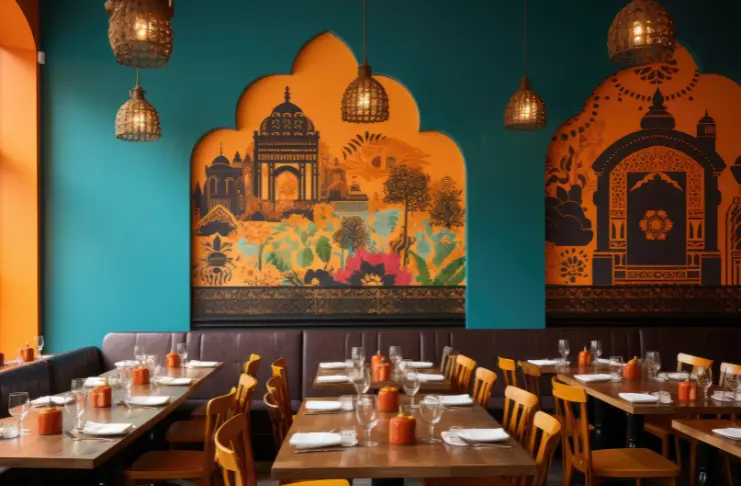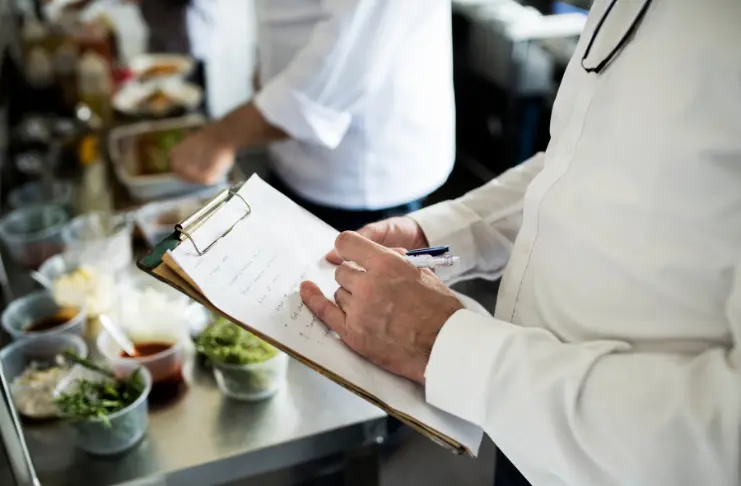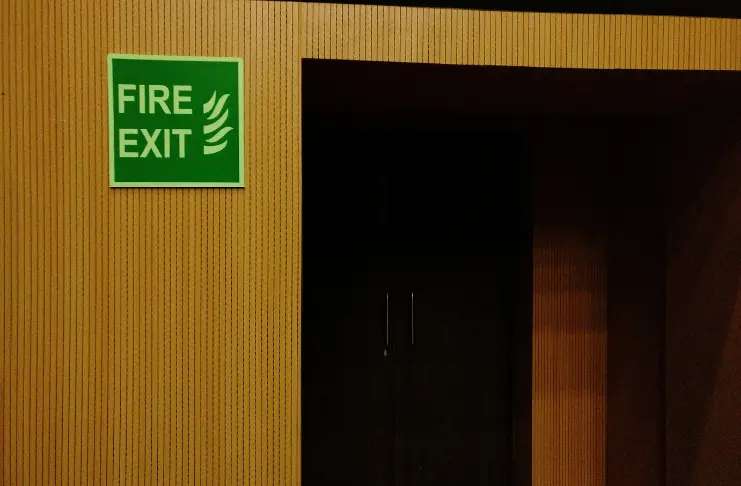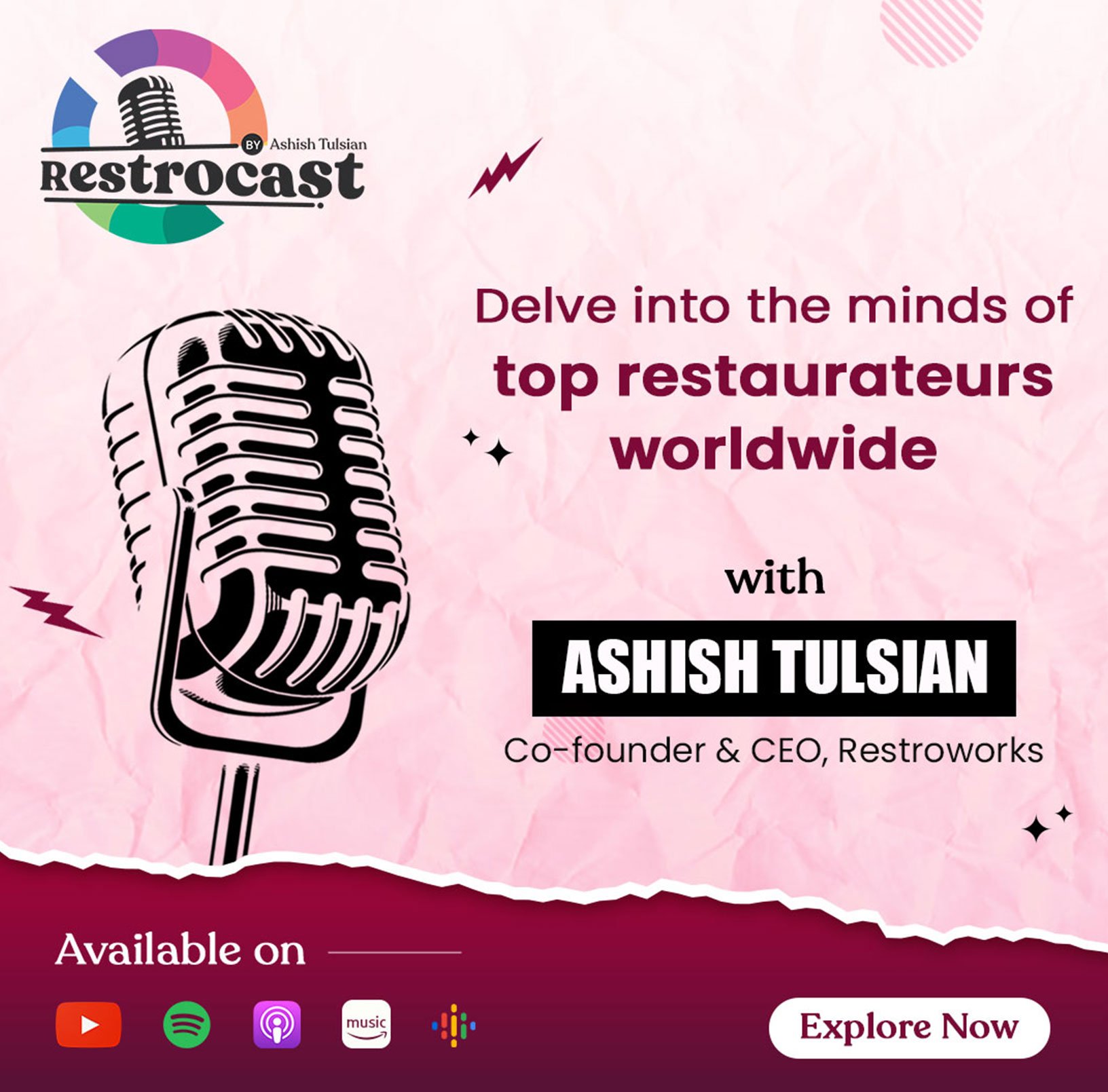
Before a restaurant even serves its first guest, it needs more than a location, staff, or suppliers—it first requires the right licenses in place. Between municipal permits, safety clearances, and regulatory filings, operators face a mix of central, state, and local-level compliance requirements.
These requirements span across multiple departments, with each license featuring its own application process, documentation, fee structure, and timeline. While some licenses are mandatory for all formats, others depend on the size of the outlet, the services offered, or the state you’re operating in.
This blog outlines a complete legal checklist for the key licenses needed for restaurants in India to help restaurant owners avoid delays and stay compliant from the beginning.
Why Restaurant Licensing Matters?
A restaurant’s legal structure determines whether the business can operate smoothly, scale effectively, and meet both regulatory and consumer expectations. With the correct licensing framework in place, restaurant owners can establish credibility and operational readiness while minimizing risk. Here’s why it matters-
1. Legal Obligation
Every restaurant in India, regardless of size or format, must hold specific licenses to legally begin operations. These are mandated under national and local laws, and failing to obtain even one can render the business technically non-operational. Authorities frequently check for permits such as FSSAI registration, trade license, and Shop and Establishment Act compliance as part of routine monitoring.
2. Fines or Shutdowns for Non-Compliance
Operating in the restaurant industry without the necessary licenses can lead to financial penalties, legal notices, or even forced closures. In certain serious cases, such as food safety violations or fire safety negligence, owners may also face criminal charges. Regular inspections by municipal bodies, health officers, or police departments often begin with a review of documentation.
3. Employee and Consumer Safety
Licenses related to hygiene, food handling, and fire safety are designed to protect the public. They ensure that the physical space, kitchen operations, and waste disposal practices meet regulatory standards. These directly affect customer safety and help mitigate legal and reputational risks.

4. Smoother Inspections and Approvals
Licensed establishments face fewer operational hurdles. Whether they’re due a food safety inspection or applying for a loan, valid documents make such processes faster and simpler. Aggregators, payment providers, and lenders often require proof of compliance before onboarding or disbursing funds.
5. Improved Restaurant Credibility
Being fully licensed strengthens your reputation with customers, landlords, suppliers, and investors. It signals that your business is structured, serious, and future-ready. It also ensures continuity—many licenses need timely renewals to avoid disruption, and having a compliance system in place supports long-term growth.
INDUSTRY INSIGHT
According to the National Restaurant Association of India, a typical restaurant needs between 15 and 25 licenses/NOCs to operate legally, highlighting the regulatory complexity in India and the need for careful compliance planning to avoid delays, penalties, or shutdowns.
Key Licenses Needed For Restaurants in India
To operate a restaurant legally in India, you’ll need to secure restaurant permits and approvals from multiple government bodies, including the central, state, and local governments. However, the exact requirements will depend on your business model, location, scale, and whether you offer services like alcohol or live music.
Below are the major licenses and permits to open a restaurant in India, the documentation required, costs, and how to apply for restaurant licenses.
A. FSSAI Food License
The FSSAI (Food Safety and Standards Authority of India) license is a mandatory regulatory permission to legally operate any food business in India, including restaurants, cloud kitchens, caterers, food delivery vendors, and more.
This food service license ensures compliance with food safety regulations under the Food Safety and Standards Act, 2006, and mandates that the FSSAI license number be displayed prominently at the premises and on invoices.
Who issues it?
- Basic Registration is issued online via the FoSCoS portal for small FBOs (Food Business Operators) with turnover up to Rs. 12 lakhs/year.
- The respective State Food Safety Authority grants a state License for businesses earning between Rs. 12 lakhs and Rs. 20 crores per annum.
- Central License comes from FSSAI centrally, mandatory for businesses operating across multiple states or with a turnover of over Rs. 20 crores/year.
How to apply for an FSSAI license?
- Register on the FoSCoS portal (Food Safety Compliance System), fill in business details, upload documents, and pay the fee online.
- For State and Central licenses, an inspection by a Food Safety Officer is conducted before approval.
- Once approved, download your license certificate and clearly display the 14-digit license number at your outlet and on menus/invoices.
Estimated cost
- Basic Registration: Rs. 100 per year
- State License: Rs. 2,000- Rs. 5,000/year depending on business type and scale
- Central License: Rs. 7,500/year
Processing time
- Basic Registration: Typically issued within 7-10 working days.
- State License: Around 15-30 days, depending on local authority workload.
- Central License: May take 30-60 days, including cross-state verification, plus inspection is mandatory before issuance.
Validity and renewal
All types of FSSAI licenses can be obtained for 1 to 5 years.
Key documents required
- Valid email ID and contact number
- FSSAI form filled and signed by the restaurant owner
- Name of all the shareholders with their ID proof
- Affidavit of proprietorship/partnership deed
- Proof of premises (lease agreement or property papers)
- Food safety management plan
- NOC from the local municipality
B. Health/Trade License
Local municipal authorities issue the Health Trade License under the Municipal Corporation or Public Health Acts. It authorizes food businesses, including restaurants, cafés, cloud kitchens, and street vendors, to operate in compliance with sanitation, hygiene, and public health norms. This license ensures that the premises and operations are suitable for handling and serving food safely.
Who issues it?
It is issued by a municipal corporation, e.g., MCD in Delhi, NDMC in central Delhi, and BBMP in Bangalore.
How to apply for a Health/Trade license?
You can apply via the municipal portal or in-person at the zonal office:
- Fill in business and premises details, and upload required documents.
- Pay processing and license fees online.
- The license is issued after document verification.
Estimated cost
License and application fees vary based on the restaurant’s location and the seating capacity. For instance, NDMC Delhi charges cafés/restaurants with ≤ 50 seats, Rs. 5,000/year, while those with more than 50 seats have to pay Rs. 10,000/year.
Processing time
It typically takes up to 30 days, depending on the municipal office workload.
Validity and renewal
Renewal for the trade license usually involves resubmission of documents, fee payment, and sometimes a follow-up inspection.
Key documents required
- Three copies of the site plan
- NOC or rent agreement from the landlord
- Restaurant plan and layout
- Water test reports
- Sewer connection proof
- up-to-date medical fitness certificates
- Utility bills and property tax receipts

C. Shop and Establishment License
The Shop and Establishment License certifies that your restaurant complies with the working condition norms set by your respective state government. It governs employment terms such as wages, working hours, holidays, safety, and leave policies for employees in commercial establishments, including restaurants and cafés.
Who issues it?
This license is issued by the Labor Department of the respective state where the restaurant is located. Each state has its own version of the Act, though most rules are fairly consistent nationwide.
How to apply for a Shop and Establishment license?
- You can apply for the license from the state labor department’s online portal or the local municipal office.
- Provide establishment details (name, type of business, address), employer/employee information, and upload the required documents.
- Fees vary slightly by state and employee count.
Estimated cost
Registration charges vary based on the state and the number of employees.
Processing time
Registrations are typically processed within a minimum of 30 days, depending on the state and document verification.
Validity and renewal
The validity period varies across states, with some offering five years and others offering a lifetime validity.
Key documents required
- PAN card and Aadhaar card of the employer/manager
- List of directors/partners/managers
- List of employees with joining dates and salary details
- Rental agreement/Copy of Sales Deed
- MOA/AOA or partnership deed (if applicable)
D. GST Registration
Goods and Services Tax (GST) registration is mandatory for restaurant businesses whose aggregate turnover exceeds the prescribed threshold. It allows restaurants to legally collect GST from customers and claim input tax credits on business purchases. Without GST registration, charging tax on bills is illegal.
Who issues it?
GST registration is issued by the Central Board of Indirect Taxes and Customs (CBIC) through the GST Network (GSTN) on behalf of the Government of India.
How to apply for GST Registration?
Applications must be submitted on the GST portal-
- Fill in Part A of Form GST REG-01 with PAN, email ID, and mobile number.
- On OTP verification, proceed to Part B, submitting business details and documents.
- Upload proofs of business address, identity, bank details, and authorization.
- A GSTIN (GST Identification Number) is generated once the application is verified.
Estimated cost
Official registration is free of charge. However, many restaurants choose to register through a tax consultant or CA, which may cost between Rs. 1,000 and Rs. 8,000, depending on service level.
Processing time
It typically takes 2-7 working days if documents are in order.
Validity and renewal
Once granted, GST registration has no expiry unless cancelled, suspended, or surrendered. Filing of monthly/quarterly returns (GSTR-3B, GSTR-1) is mandatory to maintain active status.
Key documents required
- Photo of the restaurant owner/ proprietor
- Partnership deed (in case of a partnership firm)
- Proof of ownership (sales deed, electricity bill, tax receipt)
- Bank account documents (cancelled cheque or passbook copy)
E. Eating House License
An Eating House License is a mandatory permit issued by the Licensing Police Commissioner of the city or state, allowing establishments to serve food and beverages to the public. It sanctions public dining operations and ensures compliance with safety, hygiene, and public order norms.
Who issues it?
This license is granted by the office of the Licensing Police Commissioner of the city where the restaurant is located, often at the Additional Commissioner level.
How to apply for an Eating House License?
- Register on the relevant police licensing portal (e.g., state or city site).
- Fill out the application form, upload necessary documents (self-attested), and schedule an in-person review with police officers.
Estimated cost
The fee is nominal, about Rs. 300 for a license valid up to 3 years. This cost is uniformly applied in most states.
Processing time
Typical timelines range from 45 to 60 days, depending on the jurisdiction and document verification.
Validity and renewal
Licenses are usually valid for 3 years. Renewal requires resubmission of updated documents and possibly another verification process.
Key documents required
- Legal occupancy proof or landlord NOC
- Site plan showing layout, seating & kitchen
- Photographs of the premises
- Trade License, FSSAI license
- Fire NOC if the seating capacity exceeds 50
- CCTV installation affidavit with 30 days’ recording capability
F. Fire Safety NOC

A Fire Safety NOC is a mandatory approval from the Fire Services Department confirming that your restaurant premises comply with fire safety norms per the National Building Code (NBC) and relevant state regulations. This certification is essential for any commercial establishment, especially restaurants where cooking, LPG use, and public crowds are involved.
Who issues it?
The State Fire Services Department or the Chief Fire Officer’s office oversees inspections and grants the Fire NOC. Final approval authority varies by state and building category, but typically follows a structured technical review and site audit process.
How to apply for a Fire Safety NOC?
- Submit building plans, site layout, fire systems drawings, and the application for the NOC to the state fire department.
- The concerned approving authority conducts an inspection.
- A report is prepared and submitted online, and the fire NOC license is provided.
Estimated cost
Most states currently do not charge a fee for issuing a Fire NOC.
Processing time
NOC is typically granted within 25-35 working days after completion of safety upgrades and inspection clearance.
Validity and renewal
Validity is usually 3 years for commercial establishments, such as restaurants.
Key documents required
- Structure plan of the building
- Building Model certified agenda by an architect
- Structural stability certificate
- Applicant’s ID
- Photographs of the setup building from outside
G. Environmental Clearance License
Restaurants that discharge wastewater, generate grease-laden effluents, or operate DG sets must obtain an Environmental Clearance license before starting operations. These consents are often called environmental or pollution NOCs.
Who issues it?
The Ministry of Environment and Forests issues the environmental clearance after submission of the questionnaire for environmental appraisal.
How to apply for an Environmental Clearance License?
- To apply for environmental clearance for your restaurant, a screening of the location is done via the Environmental Impact Assessment (EIA) study.
- After the assessment, you need to submit a questionnaire for the appraisal.
- Once the assessment is cleared and the questionnaire is submitted, the license can be obtained.
Processing time
The environmental clearance is usually granted to the applicant within 105 days of receiving the final EIA report.
Validity and renewal
The environmental clearance certificate has a validity of 5-30 years, depending on the nature of the project.
Key documents required
- Letter of Intent from the Ministry of Industry
- NOC from the State Pollution Control Board and the State Forest Department if the project involves forestlands
H. Liquor License
A Liquor License authorizes a restaurant to serve alcoholic beverages such as beer, wine, and spirits. Without this license, serving alcohol is strictly illegal. License types vary by establishment type, such as bars, restaurants, and hotels, and differ significantly in cost and compliance requirements by state.
Who issues it?
State Excise Departments issue these licenses.
How to apply for a Liquor License?
Each state has its regulations for serving liquor in establishments, and the application has to be submitted to the relevant state authorities.
Estimated cost
The cost of a liquor license varies by state and depends on the establishment. For instance, to serve liquor in restaurants, restaurants need to pay Rs. 1,50,000+.
Processing time
Standard processing time is 30-60 days in most states.
Validity and renewal
Generally, the license is valid for 1 year and is renewable annually.
Key documents required
- Address proof of the restaurant
- NOC from the municipal corporation and the fire department
- License application along with business details
- List of all directors of the company
- Affidavit of the applicant stating there are no criminal records
- Copy of the latest IT returns
I. Music License
A music license allows restaurants to legally play copyrighted music under India’s Copyright Act, 1957. There are two distinct licenses:
- PPL (Phonographic Performance Ltd.) covers pre-recorded music (sound recordings)
- IPRS (Indian Performing Right Society) covers live or public performances of musical compositions
These ensure composers, lyricists, and music producers receive royalties when their work is publicly used (e.g., in restaurants).
Who issues it?
- PPL issues licenses for recorded music played via radio, speakers, TV, CDs, etc.
- IPRS issues performance licenses for live music or public streaming of musical works in a venue.
How to apply for a Music License?
You can visit the official PPL website to apply for the music license.
Estimated cost
The cost of a music license can range from Rs. 5,000 to Rs. 10,000 or higher, depending on the venue and state.
Processing time
Most applications are processed within 7-10 business days.
Validity and renewal
Licenses are typically valid for 1 year and must be renewed annually before expiry.
J. Signage License
A Signage License grants permission from local municipal authorities to install and display outdoor signs, such as shopfront boards, banners, or digital displays, on or around your restaurant property. Sign permits ensures compliance with urban safety, zoning, aesthetics, and public visibility norms.
Who issues it?
Depending on your location, the license is issued by the Municipal Corporation, like BMC in Mumbai or MCD in Delhi.
How to apply for a Signage License?
You can apply through the local municipal corporation.
Estimated cost
The fees vary by city, sign type, and size.
Processing time
It typically takes around 30 days to get the signage license and can vary depending on the city.
Validity and renewal
Licenses are usually valid for one year.
Additional Licenses and Permits Depending on Restaurant Type
In addition to core licenses, certain permits may be required based on your restaurant’s size, format, or operational model. These aren’t mandatory across the board, but can be crucial for specific business types.
1. Food Delivery Aggregator Registration
Restaurants planning to partner with third-party delivery platforms must complete a registration process with each aggregator. This typically involves submitting your FSSAI license, GSTIN, bank details, and outlet photos. While this isn’t a government-issued license, it is essential for enabling online delivery and visibility on aggregator apps.
2. Outdoor Seating Permission
For restaurants offering al fresco dining, municipal approval is mandatory. Authorities evaluate location suitability, footpath width, public obstruction risk, and sanitation. In some cities, outdoor seating requires adherence to zoning regulations and payment of separate annual fees.

3. Waste Disposal Agreement
Restaurants generating large quantities of food waste, used cooking oil, or grease (especially full-service kitchens) may need formal agreements with authorized waste collection vendors or municipal services. Health departments often ask for proof of proper waste management practices during inspections.
4. Pest Control Certification
While not always mandatory, many state food safety departments recommend or require periodic pest control certification, particularly for outlets operating in areas near open drains, garbage collection points, or high foot traffic zones.
These licenses help maintain operational hygiene, compliance, and readiness for aggregator partnerships or inspections.
Conclusion
Licensing may not be the most exciting part of opening a restaurant, but it’s one of the most important. It helps build trust with customers, regulators, and even potential business partners. At the same time, getting the paperwork right from day one saves time, avoids delays, and gives you more freedom to focus on the things that really matter: serving great food and growing your brand.
Frequently Asked Questions
You need a city/county business license, a seller’s permit from California’s Department of Tax and Fee Administration to collect sales tax, and a food facility health permit issued by your local health department.
Connecticut restaurants require a food service facility license from the local health department and a general business license. Requirements can vary by town, so contact your local health regulatory agency.
To run a restaurant, you typically need one server for every 4-5 tables and one cook, depending on the number of meals served per hour, supported by kitchen and cleaning staff. Smaller restaurants can often operate with just 4-6 employees, including a manager.
You must obtain a food facility health permit from your county or city health department. Additionally, at least one employee should have food safety certification.
Georgia requires a food service permit or food handler license, which is legally priced no more than $15 per employee by state law, while the general facility fees vary by location.
You need a local business license, a food service permit through the county health department, and potentially other permits (e.g., liquor or entertainment) depending on services offered.








